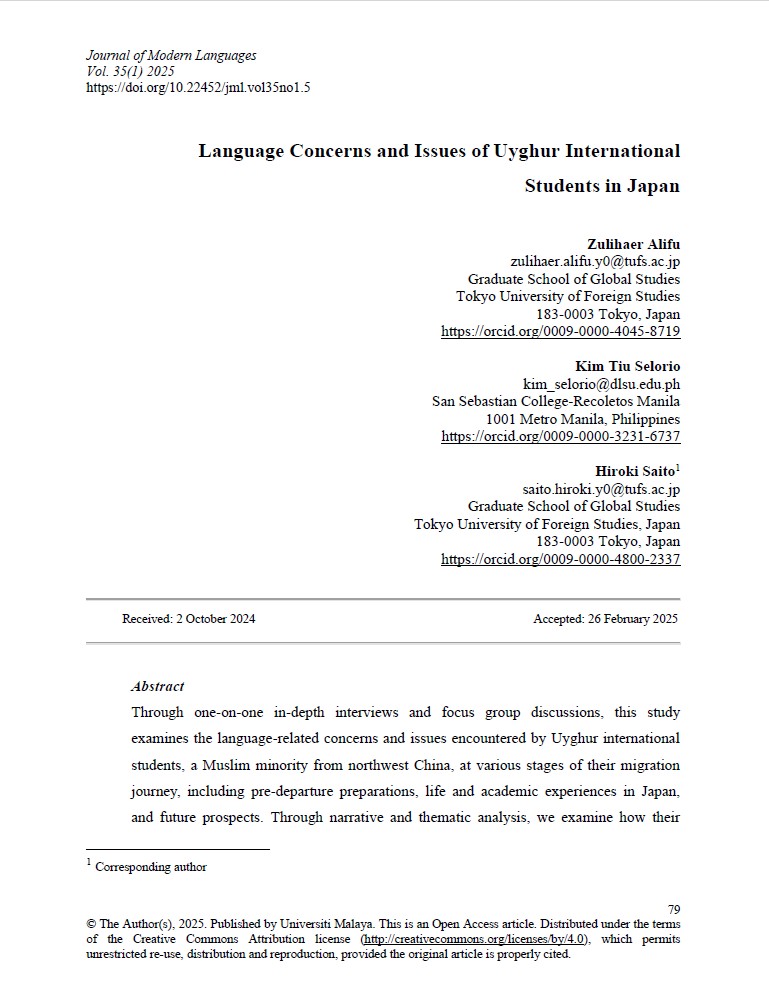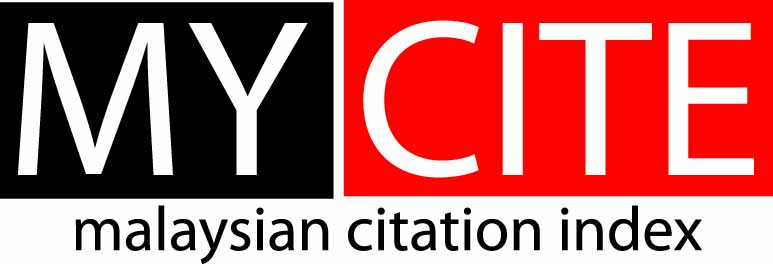Language concerns and issues of Uyghur international students in Japan
DOI:
https://doi.org/10.22452/jml.vol35no1.5Keywords:
Uyghur, International Students, Language Concerns and Issues, Migration and Integration, Coping Strategies, Migration LinguisticsAbstract
Through one-on-one in-depth interviews and focus group discussions, this study examines the language-related concerns and issues encountered by Uyghur international students, a Muslim minority from northwest China, at various stages of their migration journey, including pre-departure preparations, life and academic experiences in Japan, and future prospects. Through narrative and thematic analysis, we examine how their ethnic identity and linguistic strategies shape their academic experiences, social interactions, and daily lives. Our findings reveal that due to diverse educational backgrounds, these students demonstrate varying proficiency in Japanese, English, Chinese, and Uyghur, leading them to develop unique coping mechanisms using available linguistic resources. To cope with these language challenges and difficulties, they actively develop unique strategies by leveraging the linguistic resources available to them. To enhance the study-abroad experience for all international students, we argue that Japan should clarify study pathways at language schools, reduce initial adjustment burdens, and provide comprehensive information on higher education to facilitate a smoother academic transition. Moreover, structured language exchange programs and government-supported initiatives could help students integrate more effectively into society. For tightly connected ethnic groups like the Uyghurs, platforms that foster community-building and mutual support can be particularly beneficial. Ultimately, to promote the internationalization of higher education and address future talent shortages, Japan should strengthen language support services, improve accessibility to information, and foster an inclusive social environment to ensure that students from diverse backgrounds can thrive and contribute meaningfully to society.
Downloads

Downloads
Published
How to Cite
License
Copyright (c) 2025 Zulihaer Alifu, Kim Tiu Selorio, Hiroki Saito

This work is licensed under a Creative Commons Attribution-NonCommercial 4.0 International License.











